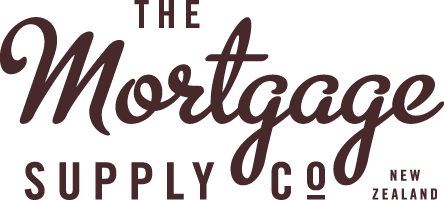
While New Zealand is known as one of the most well-insured countries in the world, we’re also ranked the second riskiest country in the world according to a 2018 major international study by Lloyd’s of London of non-life underinsurance and insurance penetration data for 43 countries.
With the arrival of COVID-19 on our shores, the insurance game in New Zealand was changed for the industry players and homeowners alike. Suddenly, the already established risks as outlined by such studies were heightened; most Kiwis' financial positions changed (for the better or worse), homes became working environments with work equipment being used on premises and the underlying feeling of uncertainty spurred a sudden concern for financial precaution.
Insurance firms were challenged to pivot and assist incoming customers as well as existing customers with their insurance policies, to ensure they were protected and for a fair and affordable price.
Now, as we enter a ‘post COVID-19’ period and we recover from the financial aftermath of the global pandemic, Kiwis are more and more conscious of insurance and its pivotal role in providing financial security during the unexpected.
This month, we chatted to our in-house insurance experts, Sue Howe and Jono Whorwood, to unpack the different ways that New Zealand insurance businesses adapted to respond to COVID-19, the true benefits of insurance (as unmasked by the pandemic) and the key things to consider if you’re reactively taking out an insurance policy.
As always, if you have any questions at all, feel free to get in touch with our team – we’re happy to help!
NZ Insurance Companies and their COVID-19 Responses
One of the most interesting and validating outcomes from the insurance industry as a result of COVID-19, was the willingness of insurance firms to adapt and change in order to support their paying customers. As mortgage and insurance advisor. Jonathan Whorwood noted;
"We saw some of the most innovative and genuinely helpful schemes we saw over the lockdown period"
Some of these included:
- Ground-breaking schemes that offered an insurance premium holiday triggered by COVID-19. Essentially, if paying customers’ incomes dropped by 20% or more as a result of the virus outbreak, they wouldn’t be required to pay but would still be covered.
- After experiencing a drop in claims due to COVID-19, some companies opted to return profits to support their members and business customers. A genuinely thoughtful move to the best interests of their membership and business customers.
- Other companies moved to assure their customers that COVID-19 had no impact on their insurance cover and that if claims needed to be made in relation to COVID-19, as with any other claim, they’d simply need to meet the eligibility requirements.
All in all, the insurance industry showed good faith and attempted to adapt and help its customers in a very Kiwi way, installing a sense of trust from customers.
The COVID-19 Insurance Lessons Learned for Kiwis
While in a lot of instances the insurance outcomes for Kiwis throughout COVID-19 were positive, the pandemic did highlight the importance of reassessing, staying aware and communicating with your insurance provider regularly. As eloquently put by Insurance Council Chief Executive, Tim Grafton;
"We recommend that people reassess their insurance annually at renewal to account for fluctuations in costs of building materials and labour, changes in natural disaster risk modelling, and any alterations or improvements they've made to their property."
To avoid disappointment, stress, over or underpayment, always consider;
- Does your insurance reflect your income changes or financial position post COVID-19? This is especially relevant if you haven’t revisited your insurance policy for longer than 24 months
- Are your benefit levels correct and will your insurance products are going to give you the claim you expect if you are looking to reduce the levels or products you pay for?
- Do you understand what you are covered for and what you are not covered for?
The benefit of insurance is being fully covered when the unexpected occurs and resting assured that you don’t have to worry about the financial ramifications and can focus on yourself and your family in turbulent times.
As put succinctly by Jonathan Whorwood;
"Most financial positions for people have changed. Whether it is for the better or worse, most of us are in a new financial position. Does your insurance reflect these changes, especially if you haven’t looked at it in longer than 24 months? Making sure your benefit levels are correct and your insurance products are going to give you the claim you expect is especially important, especially if you are looking to reduce the levels or products you pay for."
What Types of Insurance are Available and What do They Cover?
COVID-19 related or not, insurance is so important as it provides protection for you and your family in many circumstances. Of course, different insurances cover different very different circumstances. If you’re considering which type of insurance might benefit you and your family most, here’s a brief outline of each option available.
As always, it’s best to have a chat with your insurance provider if you have any questions or want to better understand how to protect yourself.
Personal Insurance
If your family depend on your financial support to enjoy a decent standard of living, it’s key to have a backup plan if something was to put your income at risk. Therefore, insurance is especially important once you start a family. It means the people who matter most in your life may be protected from financial hardship if the unexpected happens.
- Health insurance: This helps pay your bills should you develop certain illnesses or suffer from injury or disability.
- Income protection: If you or your partner are unable to work, having insurance to replace a lost income can potentially remove the stress from ongoing financial commitments until you are able to return to work. safeguards your salary by replacing it should you become unable to work.
- Life insurance: This insurance can give you the peace of mind that your family could be financially protected should something happen to you. It might mean they can pay off the mortgage, get additional childcare, pay for education or use some of the claim payment for your funeral.
- Mortgage Repayment Insurance: Protects your mortgage repayments if you become sick or disabled. This type of cover is usually not offset against any ACC payments you may receive. This together with an income protection plan, this will take away the stress or being ill and trying to meet all your financial obligations.
- Trauma Insurance: How would you cope if you were diagnosed with a critical illness and were unable to work for 6 months? Trauma insurance will provide you with a lump sum which will help reduce the stress so you and your family can focus on your health and recovering.
- Total and Permanent Disability: Total permanent disability (TPD) is a condition in which an individual is no longer able to work due to injuries. Total permanent disability, also called permanent total disability, applies to cases in which the individual may never be able to work again.
Always review your insurance options at the same time as you review or apply for mortgage finance
With all the different types of insurance in mind and the aftermath of COVID-19 and the lessons learned around income protection during an unexpected event like a pandemic, it has never been more important to always review your insurance options.
As Sue Howe notes;
"We always suggest reviewing you full insurance package any time you review or apply for your mortgage finance."
If there’s one thing we’ve learnt from our time in the insurance industry, it’s that people very rarely wake up and consider their insurance options. More commonly, it’s something that comes up because of an event such as getting a mortgage or having children. However when you’re in an already emotional time in your life, it’s easy to make mistakes.
Common Insurance Mistakes to Look Out For
- Procrastination: Not buying insurance at all can leave your loved ones stranded, stressed or in extreme circumstances even homeless. Delaying making the commitment may result in you becoming uninsurable due to health condition or accident. There are many stories where this has happened. Don’t be a victim of procrastination.
In addition, the older we get the more expensive insurance can become, apply for insurance when you’re starting out in life and are healthy. Insurance becomes your biggest asset in your hour of need and debt becomes your biggest enemy in your hour of need. You have the choice and procrastination is not your friend. - Not insuring your partner: In today’s world, usually both partners are working to support their lifestyle and both incomes are being used to pay the bills. An important question to ask, is whether yourself or you partner would be able to continue paying the bills on one income.
For example, if you’re are a young family and one parent is staying at home to mind the children again you are both contributing to your lifestyle. Essentially, insurance helps loved one look after each other in sickness and in health. - Not taking out enough insurance: One of the biggest debts most households have is their mortgage, yet many people don’t insure (or underinsure) their mortgage. It’s a common mistake to just come up with a number without doing the calculations and understanding how much is needed.
Sue explains;
"Typically, people should start with enough to cover their mortgage on death, however it’s important to also consider how the rest of the family survive if you’re the main income earner. If you died and the mortgage was repaid in full, would your partner still be able to keep the family home, or would they have to sell to cover the families living expenses."
As part of your “insurance planning” you need to take into account, trauma insurance, total and permanent disability, income protection, mortgage protection and put together a combination of these that will protect you and your family.
- Considering Extra Benefits:
Everyone understands life insurance is payable when you die. But insurance planning will protect your loved ones when the unexpected happens. Today we are living longer and with medical science many illnesses are no longer critical, though your quality of life can be drastically reduced.
Income protection ensures your income can continue, and mortgage protection will ensures you can meet your mortgage commitments. Trauma insurance will pay a lump sum on diagnosis of a critical illness and total and permanent disablement insurance will continue to pay should you never be able to return to work.
There are many add on benefits which can help recovery, so it’s important to talk to you adviser to work out which benefits will work best for you.
- Know your insurance policy
However, reviewing your policy when there are changes in your life will ensure you have the right balance of insurance for your new future.
It’s as simple as reviewing your financial position, if not annually, at least every two years. For example, if you change your job and receive a significant income increase you’ll likely this extra income insured.
A good life insurance policy will be flexible being able to increase and decrease the sums assured for your changing situation. For example, you might need a high sum insured if you have small children and a large mortgage, but lower sum insured once the mortgage is paid off and you have more savings.
- Price is not the only reason to buy: It can be difficult to compare life insurance quotes based on price alone, but fortunately there are now independent web sites that can help you.
Price is an important consideration when choosing an insurer however there are other factors to be considered, including the financial strength of the company, policy quality and customer service.
Insurers also are required to disclose their financial strength rating, and there are good independent sources of policy-quality ratings such as Quality Produce Research (QPR) available in the market. These will help you avoid nasty fish-hooks – like a life insurance policy that has different exclusions.
The Final Verdict?
Insurance is important, and an event like COVID-19 has highlighted this for many Kiwi families, however if you’re not consistently reviewing your insurance policy or are unaware of the ins and outs, you could find yourself caught out in a time of need.
There are some really key benefits of working with an advisor too:
- Your insurance advisor will handle all of your claims and take away the admin elements of your insurance policies, leaving less on your plate and less to worry about
- You're going to get professional outcomes, including a high level of service and delivery to your needs, which has proven to be invaluable in those moment when you need it most
At Mortgage Supply Co, we make sure that you’re taking out the right policies that work for you and are always fully in the know. If you’re interested in getting insured or simply want advice on your current policies, get in touch with our friendly team today.











